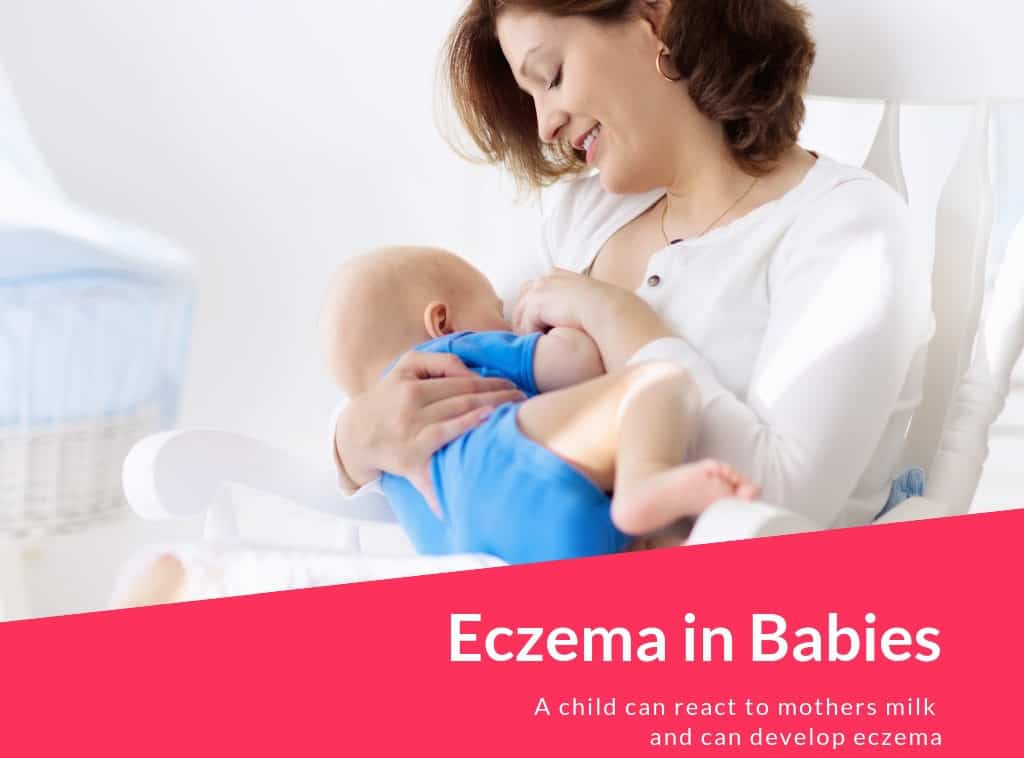I’m sure many of us at some point have turned to Google and searched WebMD to find out what Eczema actually is. The first hurdle is getting the spelling right, thankfully Google’s auto-suggest would have taken care of that. Eczema treatment becomes simple when we understand the root cause and eliminate it. It’s a natural Cure. I’ll explain lactose intolerance and food intolerance – read on.
What is Eczema?
Eczema is a skin rash that is itchy and red, sometimes bumpy too. Medically it has many names like Hives (raised skin), Urticaria or Atopic Dermatitis. They all mean the same, so let’s not worry about the name for now.
Eczema is always itchy and prolonged itching can tear and damage the skin. As we continue to itch constantly day and night, the skin becomes thick and leathery in that area. This is the body’s defense mechanism against us, trying to protect itself from us by thickening the skin in that particular area.
Eczema – The underlying cause
I am not going to give you a medical description or say that there is no cure for Eczema, however, I will reveal the mystery that surrounds this symptom. You must be wondering why I call it a symptom rather than a disease. Eczema is NOT a disease.
Eczema is caused by the over-reaction of the Immune system that in turn attacks the weakest organ system – in this case, it is the SKIN. The skin happens to be the largest organ in the human body. Eczema, stems from the Greek word ‘ekzein’ which simply means – break out. It is oddly spelled in the English language as ECZEMA that sounds like Egg Zee Ma.
You will always notice that the flare-up/ break out or Eczema happens mostly with food allergies. Yes, it is true – Food Allergies/ Food Intolerances/ Food Sensitivities are the root cause of Eczema. Most often it can be Lactose, a protein that is found in mammal milk (not in plant-based milk), along with Gluten, again a protein of the Wheat grain – that makes the dough sticky, hence the word – Glue ten. But this is not the only food that causes Eczema, there are Nuts, Fish, Pulses and Artificial flavors, Artificial colors and Food preservatives too play an important role in triggering this symptom.
The Process of Eczema
As I mentioned earlier, Eczema is the overreaction of the Immune system. Our Immune systems’ job is to protect us, however, in this case, it overreacts and attack us instead.
Let’s say that the Milk protein consisting of Lactose, Whey Protein, Casein or Lactic Acid present in the milk is the Allergen; when we drink Milk, the Immunoglobulin G (IgG) a type of antibody, representing approximately 75% of serum antibodies in humans found in the blood, triggers certain T-Cells which in turn triggers the production of Histamine. It’s the histamine that creates all the havoc, thereby informing us that something is wrong inside us and that our Immune system is attacking us. Kind of a warning system is what I would say.
When this happens, we normally take an Anti-Histamine which counteracts the effect of Histamine, thus suppressing the symptom – for a while. This happens every time the alleged food enters our bloodstream. IgG is a slow reaction, it takes up to 2-5 days for a reaction/break out or Eczema to happen. Every time we consume the food that we are intolerant to, our sensitivity towards it is elevated and is soon attacked by our Immune System.
What are the different types of Eczema?
Some of the common ones are listed below:
- Atopic dermatitis
- Contact dermatitis
- Seborrheic dermatitis
- Hand eczema
- Dyshidrotic eczema
- Nummular eczema
- Stasis dermatitis
- Neurodermatitis
Emotional triggers and Social stresses with Eczema
Adults and children alike have ‘Emotional issues‘ associated with Eczema. You may wonder what an allergic reaction has to do with emotions, the answer lies in the GUT – BRAIN connection, what happens in the gut affects our brain.
The Solar Plexus is the center of the human body, it is the most important place in the body. Some of the triggers happen in the CNS or Central Nervous System. That is the reason most people with Eczema have emotional issues.
According to Oriental medical theory, emotions can cause pathological health problems in us. Simply put, the origin of certain physical symptoms can be traced back to some unresolved emotional trauma we may have gone through at some point in our life. Adults or children with Eczema have delicate emotions, any simple emotional incident can sometimes imprint a lasting image in their minds causing itching and scratching.
Most young adults with Eczema are introverts and tend to lack a social life. Most often they hide behind the computer screens and connect with friends through social media. I’ve met some, who are homeschooled due to their severe Eczema. The social stigma associated with Eczema is quite alarming, I recollect a mother could not get School Admission due to her child’s severe Eczema. Sad, but true!
Genetically Inherited Allergies
About 40% of our genes are inherited from our parents. Most of us with Eczema may have one or both parents with some sort of skin allergies or respiratory issues like Asthma. They are most likely to have siblings with some or severe allergic reactions.
The good thing about Genetics is, it can skip a generation. A lot of these can be changed or corrected within our lifetime. So don’t be quick in blaming your parents or blaming yourself if you are a parent. There is nothing you can do about Genetic inheritance.
Can Babies get Eczema?
Of course, it can start from birth. Some babies are born with Lactose Intolerance and they are reactive to their own mothers’ milk. It is very difficult to see a newborn baby struggle with severe itching from drinking mothers milk. If you happen to be a new mother, it’s quite daunting and confusing to understand the concept of Food Sensitivity in a newborn baby.

What can I do when my baby is itching severely and develops rashes?
Seek medical help first. Check for IgG or IgE food Intolerance test or Allergy test. This information will be a huge help and an eye-opener in understanding Allergies.
Switch to Lactose-Free milk, it may work in some cases. It’s not the same for everyone, every child is different, it may work for some and may not work for others. Don’t get roped into fables, chat rooms and forum suggestions, you will waste your time trying out various suggestions. Instead, understand the science behind allergies, you will save a lot of pain and discomfort for your child.
Plant-based milk is also a good option. Almond milk, Soy milk, Rice milk, Coconut milk are worth trying, however, be cautious that your child does not have a sensitivity to Nuts or Soy.
Where does it start?
Usually between the folds of the skin. It could be elbow folds, knee folds and for adult females, under the breast. What starts off as itching may soon turn into Eczema. The folds of the skin create sweat and rubbing skin is the starting point of Eczema.
Eczema on the face and hands are a common occurrence, especially between folds of the skin.
I may sound contradictory now, whatever said and done – Mother’s milk is the best for your child. It contains all the nutrients your baby needs and moreover contributes to your child’s Innate Immunity. Hence, as a parent do what you would deem best for your child.
Is eczema contagious?
No. Eczema is not a disease and it is not contagious. People who lack this knowledge or understanding may behave differently with you or with your child, my sincere advise – Ignore them!
Candida overgrowth in Eczema
An adult or child may have Candida Albicans overgrowth when experiencing severe Eczema. Usually, craving for sweets and carbs, that’s because Candida (Yeast) thrives on such foods and hence the craving for it. A simple ‘spit test’ can reveal Candida overgrowth or a lab test will show if Candida is present.
Is Eczema Curable? What is the Treatment?
From a holistic point of view, yes. Most often the symptoms are kept at bay with Anti-histamines and Steroids, however, the root cause is the allergy that triggers the Eczema.
Is Eczema Chronic? Yes, since it’s the IgG reaction (one could also have an Ig E reaction as well quite often), it’s always chronic and you could suffer from it for years. What starts off as an itch can soon become Eczema / Dermatitis, when this becomes chronic, a person can get Psoriasis too.
However, it could take years to develop into Psoriasis. Most people who have Eczema could also have chronic Asthma as it is to do with the Immune system.
What foods to avoid?
The usual culprits are Lactose & Gluten. Foods like Cheese, Butter, Chocolate, Cream, Ghee (clarified butter) Whey proteins. Anything that is made from Mammal milk including mothers milk as Lactose is commonly found in all of these.
Wheat is another food. Avoid all forms of Gluten like Bread, Buns, Pasta, Chapati, Khuboos, Parathas. All forms of nuts including Peanut, Almond, Cashew nuts and so on.
An IgG food Intolerance test will reveal the real culprit, this will save you or your child a ton of suffering. So go ahead and find the nearest lab that tests for over 200 food groups.
NAET has a non-invasive way of using our body’s energy to see if the food is offending or not through MRT (Muscle Response Test), this is done using Applied Kinesiology.
Home remedies for Eczema
There is a simple way to overcome Eczema, perhaps it’s the easiest and most effective way to treat Eczema at home.
Get organically grown Potato, preferably local, after washing thoroughly, crush and make a paste with its skin. Apply directly to the affected areas, repeat this 2-3 times a day with the same paste. You will notice the rashes subsiding within 3 days. Continue to do this as long as you experience itching and rashes.
Alternatively, using the gel from the Aloe plant to apply directly on the affected region may seem to help as well. Applying Olive oil or Coconut oil to the affected area helps too. Please be advised, that if you or your child is possibly allergic to any of these remedies, kindly refrain from using it.
Beneficial Food that supports Eczema
Include these foods in your diet:
- Broccoli
- Cornsilk
- Adzuki Beans
- Dandelion
- Mung Beans
- Pearl Barley
- Potatoes
- Seaweed
- Water Chestnut
- Watermelon
Eczema Cream
Most topical creams help to soothe the skin, however, the natural cream would be Aloe Vera. Another popular moisturizing cream is Cetaphil, which is available in most pharmacies and departmental stores.
Overcame Chronic Asthma and Eczema with NAET
In conclusion
There are various components to Eczema triggers: 1. Food Intolerances and 2. Environmental factors (Dust, Mold, Heat) 3. Emotional Stress. Either one of these can flare up your Eczema.
Most treatments involve addressing the symptoms and not the root cause, hence it keeps coming back. Removing Dairy and Wheat will give you tremendous relief, to the extent where the symptom is gone completely sometimes. This a good start, however when these foods are reintroduced later; chances are there could still be a reaction.
Connect with us through our Facebook page at www.facebook.com/NAETDubai or visit: www.naetdubai.com. You will find a wealth of information here along with an opportunity to speak confidentially through WhatsApp 056-639 0197 or Phone Call 04-420 1633.
You may also email us at admin@naetdubai.com
Useful References:
Learn the A_Z of Skin Allergy and Eczema Treatment, naturally with NAET
A Natural Way to Eliminate Dermatitis
Overcome Lactose Intolerance, for good
Visit NAET Dubai




2 Responses
Like!! Thank you for publishing this awesome article.